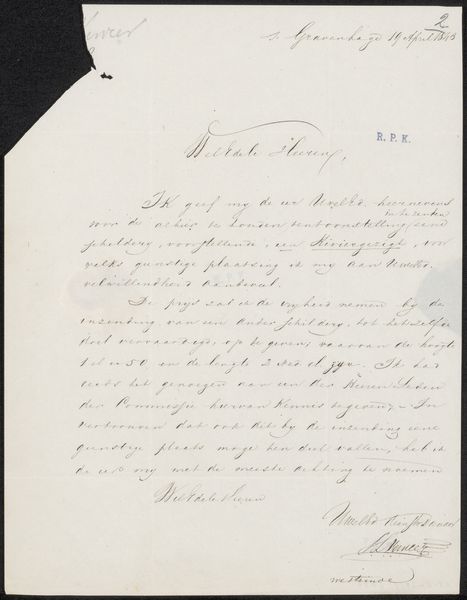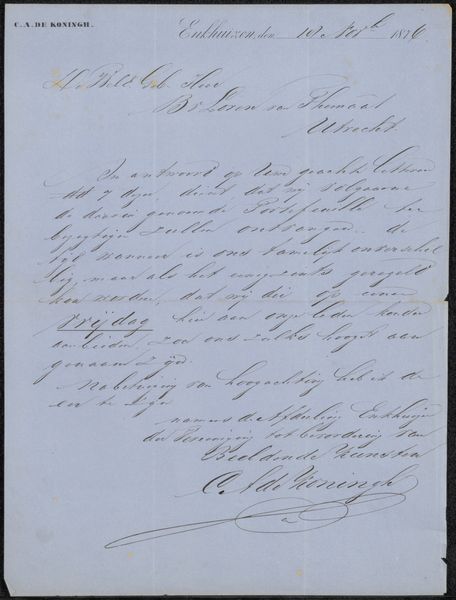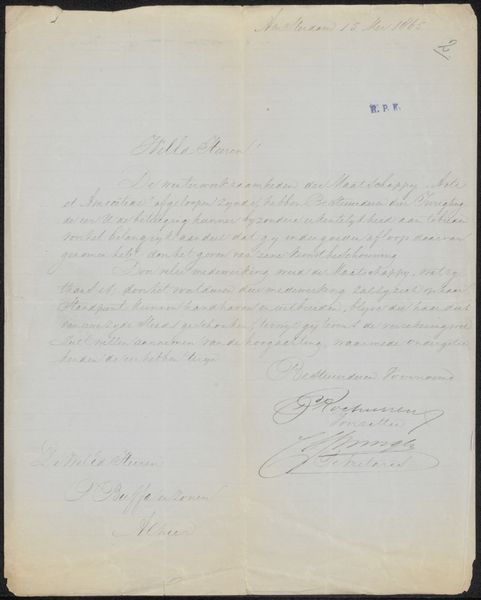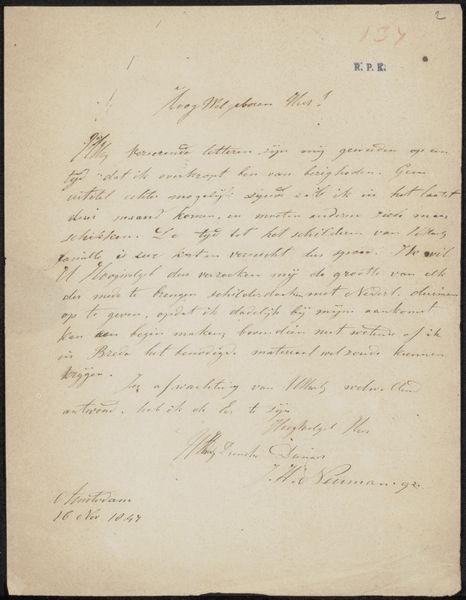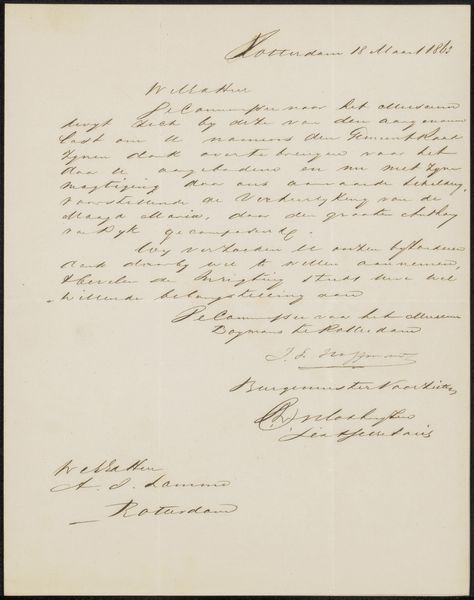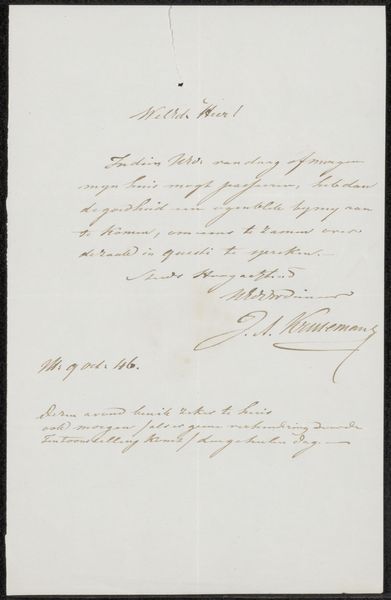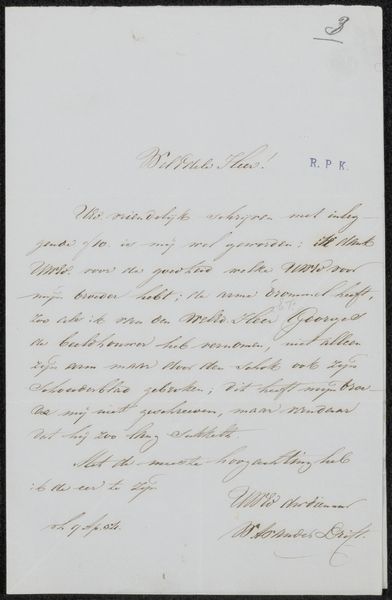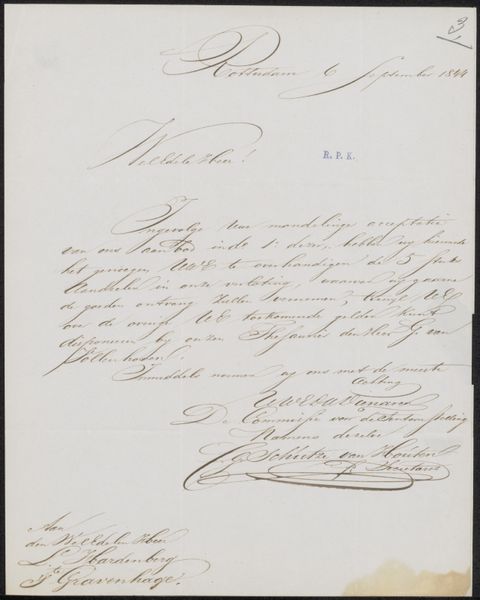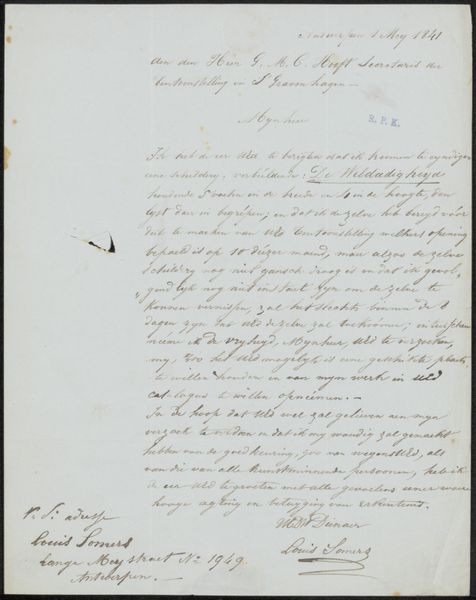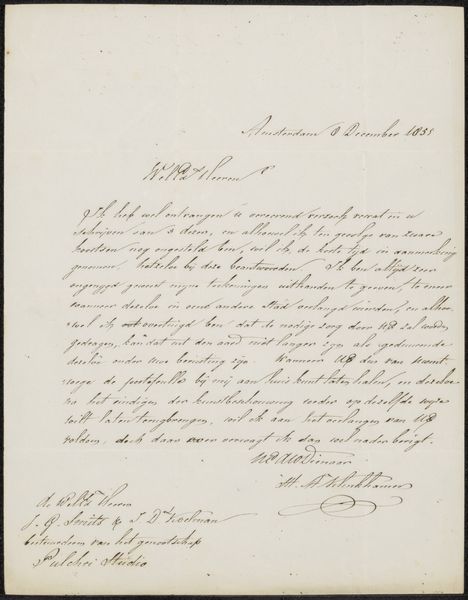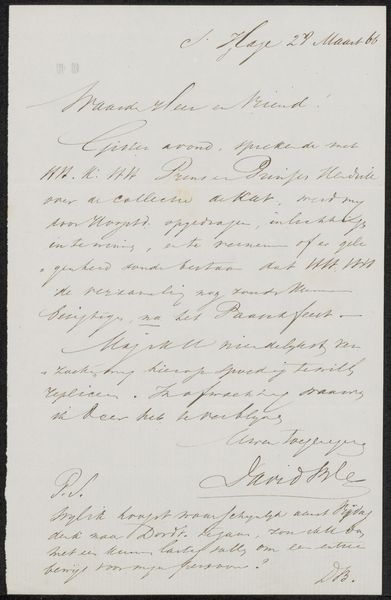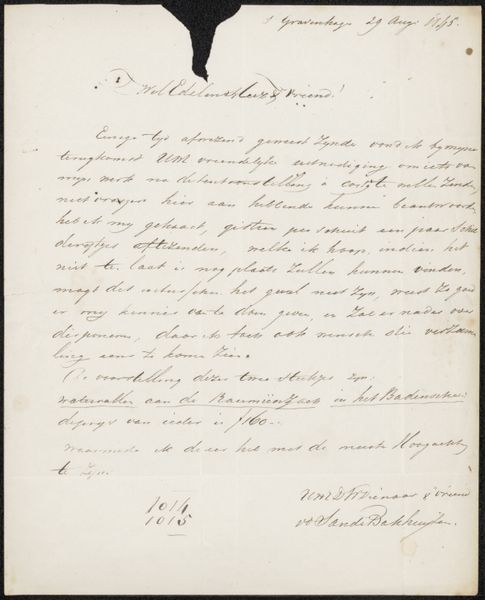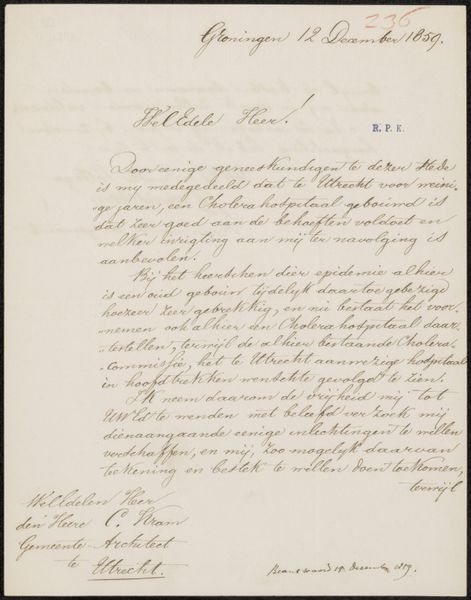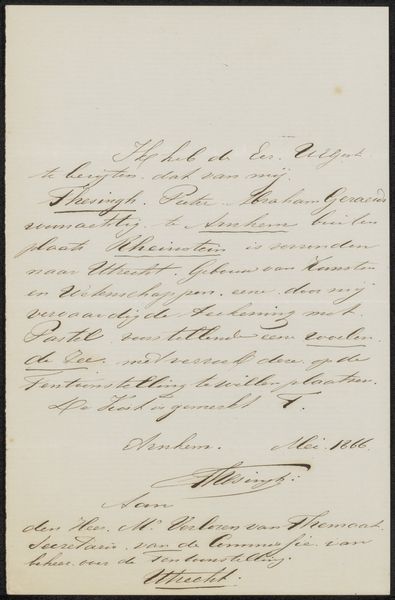
drawing, paper, ink, pen
#
drawing
#
paper
#
ink
#
pen-ink sketch
#
pen
Copyright: Rijks Museum: Open Domain
Curator: This work, "Brief aan Jan Weissenbruch," possibly from 1847 by Carl Joseph Fodor, presents an intriguing artifact of correspondence using pen and ink on paper. Its impact arises not from pictorial representation, but textual form. Editor: It really emphasizes the textures of the writing on this piece of paper. The shapes are almost like miniature abstract art, how do you see that fitting into a wider art landscape? Curator: Consider the calligraphic quality, the modulation of line weight and the sheer act of mark-making. Here, the arrangement on the page functions as a visual composition, the artist creating micro-aesthetics. Ask yourself, how do the ascenders and descenders, the letter spacing and kerning work in symphony? Editor: So it's more about appreciating the form of the text itself? But what does the message add to this? Curator: Indeed. The linguistic meaning does not obstruct our consideration of pure, non-objective visual design and artistic endeavor. Think, then, if we can disregard semantic interpretations and scrutinize its materiality and compositional balance. What about negative space against positive elements, how do those interweave? Editor: That’s a completely different perspective from how I usually consider letters! I had always thought about historical context, or who wrote this. Focusing on the art side instead really opens my eyes to new forms. Curator: Precisely. Art exists beyond image making alone; its language permeates the written world too. This letter serves as a potent reminder.
Comments
No comments
Be the first to comment and join the conversation on the ultimate creative platform.
